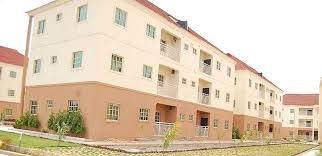The Federal Government has raised concern that many civil servants cannot access its housing loan schemes because their monthly salaries are already weighed down by several deductions from commercial loans. The situation, according to the Federal Government Staff Housing Loans Board, has made it difficult for workers to benefit from opportunities designed to make home ownership easier.
Executive Secretary of the Housing Loans Board, Hajiya Salamatu Ahmed, spoke on the issue at the Permanent Secretaries’ Quarterly Forum with Union Leaders, organised by the Service Welfare Office under the Head of the Civil Service of the Federation. She explained that many federal workers have already committed their salaries to servicing debts obtained from commercial lenders, some of which she described as “sharp loan agencies.” She said this development leaves little or no room for them to take part in the government’s housing loan initiative.
“Let me tell you why workers may have difficulty in accessing these loans. Majority of them have already mortgaged their salaries by taking series of loans from these agencies that operate what we call sharp loans. So, at the end of the day, there is no way you can propel them to pay the housing loan. This is very sad,” Ahmed lamented.
She described the matter as worrisome, particularly because the loan ceiling for senior civil servants has been increased to ₦20 million. Ahmed further explained that a special housing loan scheme has also been created for officers on Grade Levels 8 to 14. She added that the board is in partnership with mortgage institutions and private developers to ensure that civil servants can access affordable housing in different parts of the country.
Speaking earlier, the Permanent Secretary of the Service Welfare Office, Mrs. Patience Onyekunle, declared the forum open. She noted that the gathering was meant to strengthen dialogue between government and labour unions with the aim of promoting staff welfare, industrial harmony, and improved productivity within the civil service. Onyekunle highlighted some of the key initiatives under the Federal Civil Service Strategy and Implementation Plan (FCSSIP 2021–2025).
According to her, these include group life assurance for federal workers, the President’s ₦750 billion pension bond bill currently before the National Assembly, and the revival of the Nigerian Social Insurance Trust Fund (NSITF). She also listed the provision of free medical services at the HCSF complex, a review of recognition and reward policies, and the introduction of an open-door policy that allows for more regular engagement with unions.
On his part, the Deputy General Manager of the Nigerian Social Insurance Trust Fund, Mr. Usman Tumsah, explained that the Fund is simplifying its claims process and digitising applications to guarantee timely compensation for workplace accidents and deaths. He stressed that all federal civil servants are automatically covered under the employee compensation scheme. However, he pointed out that several Ministries, Departments, and Agencies (MDAs) have not yet completed the required documentation. Tumsah said this gap has made ongoing sensitisation necessary to ensure that workers benefit fully from the scheme.
Union leaders present at the forum also raised some issues. Mrs. Chika Ukachukwu, Chairman of the Ministry of Information and National Orientation Union, praised the Federal Government for some of its initiatives but expressed worry over the challenges faced by workers under the National Health Insurance Authority (NHIA) scheme. She complained of delays and bottlenecks that often discourage civil servants from seeking timely medical attention when the need arises.
The discussions at the forum highlighted the struggles faced by Nigerian civil servants who continue to deal with low take-home pay, rising deductions, and high living costs. While the government has rolled out several welfare policies to address these challenges, union leaders believe that more needs to be done to ensure that workers can access housing loans, health services, insurance cover, and other social benefits without unnecessary obstacles.
The housing loan scheme is considered one of the key interventions to bridge the housing deficit in Nigeria, especially for government workers who earn modest salaries and often struggle to own homes. However, the rising culture of multiple loan deductions from commercial lenders has remained a major barrier for many workers who end up being trapped in a cycle of debt repayment. The Federal Government insists that it will continue to partner with financial institutions and unions to find ways of making housing more accessible, affordable, and sustainable for civil servants across the country.
